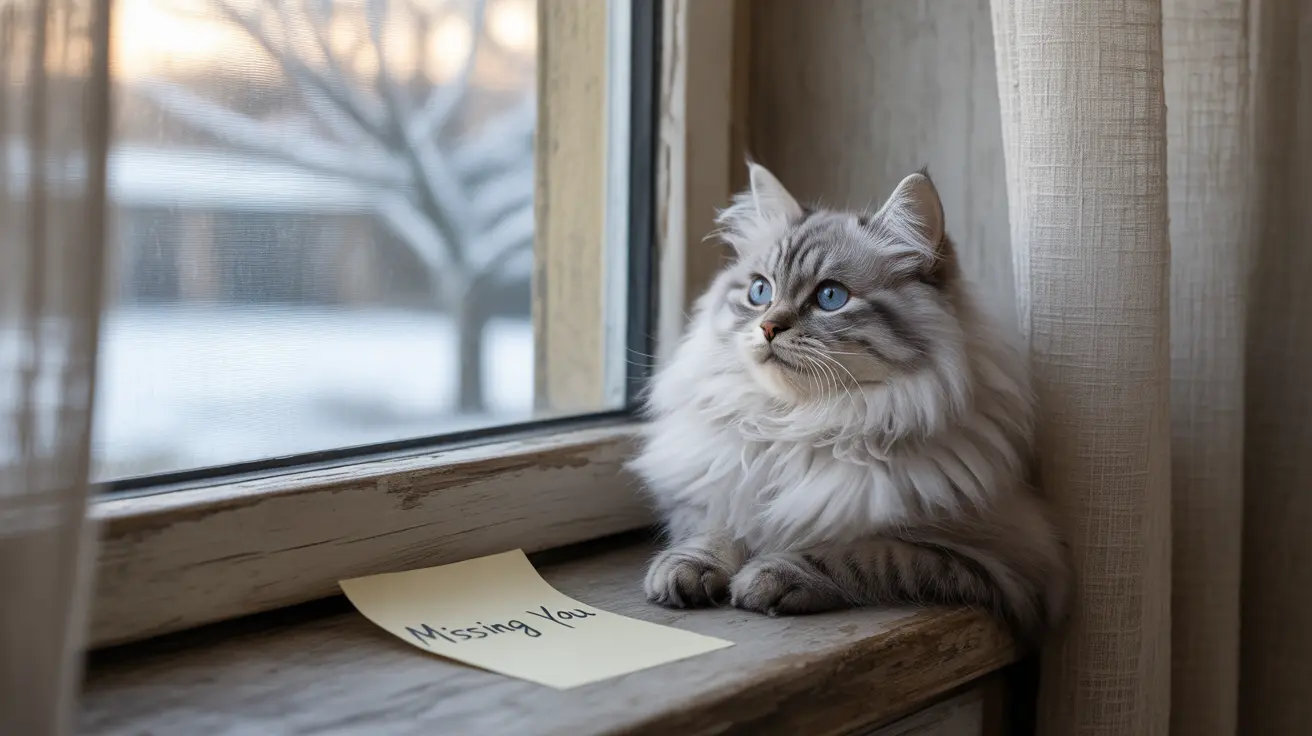When a beloved feline companion passes away, the surviving cat often experiences a period of grief that can significantly impact their behavior and well-being. Understanding how cats process loss and how long they typically mourn can help pet owners provide better support during this challenging transition.
Research shows that cats are highly emotional creatures capable of forming deep bonds with their feline housemates. While each cat's mourning process is unique, there are common patterns and timeframes that can help owners know what to expect and when to be concerned.
Understanding the Duration of Feline Grief
According to studies by the American Society for the Prevention of Cruelty to Animals (ASPCA), most cats demonstrate mourning behaviors for approximately six months after losing a companion cat. However, this timeline can vary significantly based on individual personalities and circumstances.
Some cats may show signs of recovery within a few weeks, while others might experience prolonged periods of grief lasting beyond six months. The key is understanding that there's no "normal" timeline – each cat processes loss in their own way and at their own pace.
Common Signs of Mourning in Cats
Behavioral Changes
The most noticeable indicators that a cat is mourning include:
- Changes in vocalization (increased meowing or unusual quietness)
- Decreased appetite or altered eating patterns
- Changes in sleeping habits or locations
- Increased neediness or withdrawal from human interaction
- Searching behaviors, such as looking for their lost companion
- Changes in grooming habits
Physical Manifestations
Grief can also manifest in physical symptoms, including:
- Lethargy or decreased activity levels
- Changes in litter box habits
- Excessive grooming or reduced grooming
- Weight loss due to decreased appetite
Factors Affecting the Mourning Period
Several key elements influence how long and intensely a cat might mourn:
- The strength of the bond between the cats
- The surviving cat's personality and temperament
- Previous experience with loss
- Environmental stability and routine consistency
- The owner's emotional state and behavior
- Access to comfort and support
Supporting Your Grieving Cat
There are several effective ways to help your cat through the mourning process:
- Maintain consistent daily routines
- Provide extra attention and affection
- Create new positive experiences and interactions
- Consider using pheromone products to reduce stress
- Ensure proper nutrition and hydration
- Consult with a veterinarian if concerning symptoms persist
Frequently Asked Questions
How long do cats typically mourn the loss of another cat?
Most cats show signs of mourning for about six months, though this can range from a few weeks to over a year depending on the individual cat's personality and circumstances.
What signs indicate that a cat is grieving after losing a companion?
Common signs include changes in appetite, vocalization patterns, sleeping habits, and social behavior. Some cats may become more clingy while others might withdraw from interaction.
How can I help my cat cope with the loss of a sibling pet?
Maintain regular routines, provide extra attention and comfort, ensure proper nutrition, and create engaging activities. Consider using calming aids if recommended by your veterinarian.
What factors influence how long a cat mourns the loss of another cat?
The strength of their bond, the cat's personality, previous experience with loss, environmental stability, and the owner's emotional state all influence the mourning period.
Can introducing a new cat help a grieving cat recover faster?
Not necessarily. It's generally better to wait until your cat has processed their loss before introducing a new companion. Rushing this process can create additional stress and complications.
Conclusion
While the typical mourning period for cats averages around six months, it's essential to remember that each cat's grief journey is unique. By understanding the signs of mourning and providing appropriate support, owners can help their cats navigate this difficult transition period more effectively.
If you notice prolonged or severe signs of distress in your grieving cat, don't hesitate to consult with a veterinarian. They can provide additional guidance and ensure your cat's emotional state isn't masking any underlying health issues.






